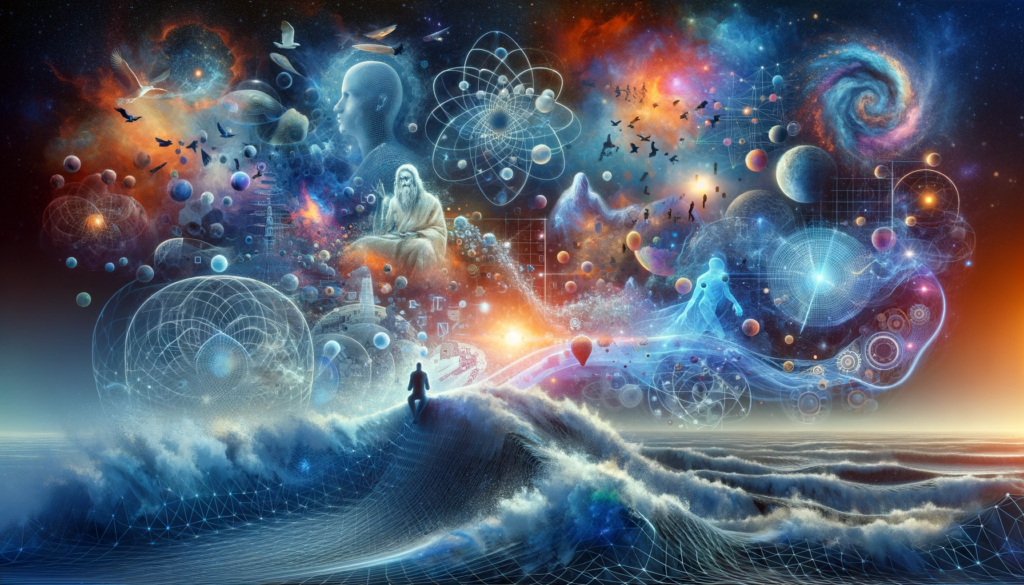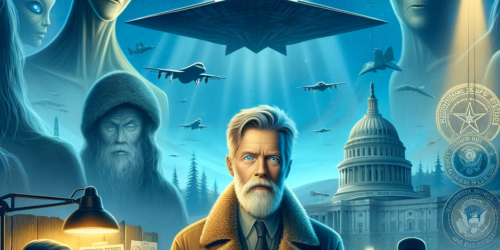The Fabric of Reality

“The Fabric of Reality” by David Deutsch is a profound exploration of the nature of reality, intertwining various disciplines such as physics, philosophy, and computer science.
David Deutsch, born in Haifa, Israel, in 1953, is a distinguished physicist known for his advocacy of the multiverse interpretation of quantum physics and his groundbreaking contributions to quantum computing and quantum physics. His academic journey began at Cambridge University, where he pursued undergraduate studies in physics, followed by doctoral studies at Oxford University. His PhD thesis at Oxford laid the foundational ideas for his later revolutionary work in quantum computation and quantum theory.
After completing his PhD, Deutsch continued his career at Oxford University, predominantly working at the Clarendon Laboratory, a part of Oxford’s Department of Physics. His most notable contribution is in the field of quantum computation, where he formulated the concept of a quantum Turing machine. This innovative idea provided the theoretical underpinnings for the development of quantum computers and significantly propelled the field of quantum information science forward.
In quantum physics, Deutsch is renowned for his strong support of the multiverse, or “many-worlds,” interpretation, initially proposed by Hugh Everett. This perspective posits that all possible outcomes of quantum measurements are realized in some form in a vast array of parallel universes. Beyond his scientific research, Deutsch has also made his mark as an author, penning influential books like “The Fabric of Reality” and “The Beginning of Infinity.” These works explore the broader implications of his theories on the nature of reality, the evolution of knowledge, and the future of humanity.
Deutsch’s work has not only earned him considerable recognition within the scientific community but has also established him as a respected figure in both physics and the philosophy of science. His interdisciplinary approach, merging physics, philosophy, and computation, has profoundly influenced our understanding of the fundamental nature of reality and the limitless potential of human knowledge. By challenging the traditional boundaries between various disciplines, Deutsch advocates for a more integrated and interconnected view of the universe.
- Theory of Everything: Deutsch argues for a unified understanding of reality, incorporating four main strands: quantum physics, epistemology (theory of knowledge), evolution theory, and computation theory. He believes these strands are interconnected and essential for a complete picture of the universe.
- Quantum Physics and Multiverse Theory: A central aspect of Deutsch’s argument is the multiverse theory, derived from quantum physics. He suggests that parallel universes exist and interact with each other. This claim challenges traditional interpretations of quantum mechanics, advocating for a broader, more interconnected understanding of reality.
- Epistemology: Deutsch emphasizes the role of problem-solving and critical thinking. He argues that our understanding of the universe is constantly evolving through conjectures and refutations, drawing from Karl Popper’s philosophy of science.
- Evolution Theory: Deutsch applies the principles of Darwinian evolution beyond biology, suggesting that knowledge itself evolves through a process of variation and selection of ideas.
- Computation Theory: He asserts that all physical processes can be viewed as computations. This idea ties back to his concept of the multiverse, where every possible outcome of a quantum event exists in its own universe, akin to running all possible computations.
“The Fabric of Reality” by David Deutsch is a compelling synthesis of multiple disciplines, offering a unique perspective on the nature of reality. Deutsch’s integration of quantum physics, epistemology, evolutionary theory, and computation theory challenges conventional views and invites readers to see the universe as an interconnected and dynamic entity. The book is influential in its scope and the depth of its ideas, contributing significantly to discussions in both scientific and philosophical circles.



